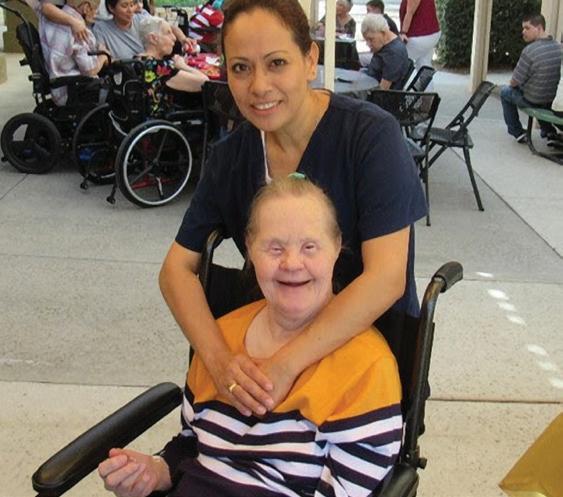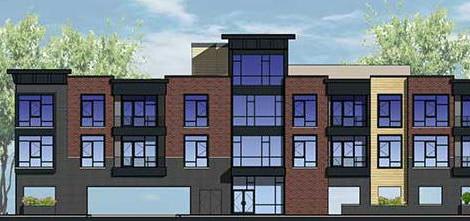
8 minute read
FHA decision to Approve Classic Fico for
Covid-19 has crashed many sectors in the economy, and now the U.S is facing dark times ahead, especially with the coming winter season. Amidst the chaos and havoc wrecked on the nation by Covid-19, a range of other hot-button issues such as immigration, tax, and racial issues are tearing the country apart. Many of these issues are addressed in Presidentelect Joe Biden’s campaign pledges, with housing concerns fighting for equal recognition. However, it did not share the limelight with other pressing topics in the 2020 presidential campaign. With mortgage rates noticeably low and foreclosure rates high, many people are facing the daunting threat of homelessness.
PROMISE MUST BE KEPT! AFFORDABLE HOUSING GROUPS LOOK FOR BIDEN TO FULFILL CAMPAIGN PROMISES
Biden has made plans that will enable more Americans to become homeowners and also have access to affordable housing. President-elect, Joe Biden proposed a $640 billion housing plan in February to take care of these concerns for the next ten years.
Sarah Saadian, vice president of public policy for National Low Income Housing Coalition, has pointed out the necessity of taking a firmer, extended eviction moratorium that protects many more people from evicted or losing their homes. Affordable Housing groups feel optimistic about the future of Housing under the new government. Under this new administration, resolving unemployment levels, low-income earning, community development, racial housing disparity are all issues that will be prioritized in the enactment of this housing plan.
In the height of the pandemic, the death toll in the U.S alone has climbed over the dismal mark of 250,000 casualties (see CNN Covid-19 death toll news); this has overwhelmed the hospitality
sector much more acutely than any other sector as there has been no approved vaccine treatment forthcoming. It becomes vital to point out that the acceptable ways to stay safe are to remain at home, maintain social distancing, regular washing of hands, clean hygiene, etc. For example, a family who fails to pay their mortgage loses their home and become squatters in foreclosed homes. Their hygiene comes second to their need for shelter as they may move around aimlessly, inadvertently coming in contact with contaminated surfaces. The issue of housing is thus paramount to mass safety in this regard. Irrespective of whatever measures are put in place, if affordable and convenient housing is not provided, adhering to the safety protocols is a moot point. Many households, especially low and middle-income, are dependent on the government to alleviate housing conditions.
The $640 billion housing plan is well-structured to address these crucial housing needs while ensuring stable, secure, and comfortable living conditions. Housing agencies are also hoping that the provision of Covid-19 relief packages and emergency housing would go a long way in providing the support system that will make the implementation of this plan much more effective.
Regardless of the declarations and proposals, saying and doing are two different kettles of fish. It is believed that campaign promises are mostly blandishments, and following through becomes a decision of political and informational entanglements. However, affordable housing groups keep their fingers crossed that this new administration will do everything possible to ensure the execution of these proposals.
References
https://www.housingwire.com/articles/affordable-housinggroups-look-to-biden-to-fulfill-campaign-promises/amp/ https://amp.cnn.com/cnn/2020/11/19/health/us-coronavirusthursday/index.html

Do you knowPeppermint Ridge?
We provide a community of loving homes and empowering support services for individuals with intellectual and developmental disabilities.

support and encourage our residents to live their We lives and fulfill their dreams by fully embracing their indvidual abilities and interests. With 24-hour specialized care and staffing, we provide comfortable, secure homes and recognize that everyone feels a sense of belonging when they have familiar places in which to spend time with family and friends. is a true sense of family at Peppermint Ridge. Of the 94 adults who There live at The Ridge, 38 have lived here for more than 20 years, with 10 of those calling The Ridge home for 40 years or more. Residents have the opportunity to flex their muscles of independence while developing rich lives of their own away from their loved ones. About 30% of our residents have no family, so other Ridgers and our staff have become their family.



Many caring companies, organizations and individuals in the community enjoy getting to know The Ridge by helping on small projects, hosting fundraisers, lending a hand at events, volunteering in our office, and assisting residents in activities such as arts and crafts, pool days, horseback riding, music and piano lessons, and exercise classes.

825 Magnolia Ave • Corona CA 92879 • 951.273.7320 www.PeppermintRidge.org • Tax ID: 95-2409851
www.StopHigherPropertyTaxes.org

Split-Roll Property Tax Measure Hurts Immigrant and Minority Communities Background: Prop 13 Has Helped All Californians for More Than 40 Years
• For more than 40 years, Prop 13 has provided certainty to homeowners, farmers and businesses that they will be able to afford their property tax bills in the future. Under Prop 13, both residential and business property taxes are calculated based on 1% of their purchase price, and annual increases in property taxes are capped at 2%, which limits increases in property taxes, especially when property values rise quickly.
Split-Roll Property Tax Measure Destroys Prop 13 and Makes Our Economic Crisis Worse
• Amid an unprecedented economic crisis, special interests submitted petitions to qualify a measure for the
November 2020 statewide ballot that will destroy Prop 13’s property tax protections and will be the largest property tax increase in California history. The measure will raise taxes on commercial and industrial property by requiring reassessment at current market value at least every three years. This type of property tax is known as a “split-roll tax” because it splits the property tax roll, assessing business property differently than residential property. • We should reject this measure and maintain Prop 13 protections that have kept property taxes affordable and provided every taxpayer who buys a home or business property with certainty that they can afford their property tax bills in the future. Now is not the time to raise taxes and bring more uncertainty to businesses and all Californians.
Gentrifies Our Longtime Communities
• A split-roll property tax will provide a huge financial incentive for local governments to approve business projects to replace existing housing so they can receive higher property tax revenue. It will also push small minority- and immigrant-owned businesses out of our communities when they can’t afford the higher property taxes. This unintended consequence will intensify the gentrification already occurring in much of the Bay Area and Southern
California coastal counties.
Hurts Small Businesses and Consumers
• Most small businesses rent the property on which they operate. The measure’s higher property taxes will mean soaring rents at a time when the federal and state government is trying to provide small businesses with rent relief to keep their doors open. Ultimately, the measure’s tax hike on businesses will get passed on to consumers in the form of increased costs on just about everything people buy and use, including groceries, fuel, utilities, day care and health care.
Hits Minority-, Immigrant- and Female-Owned Businesses the Hardest
• Small businesses are already struggling. This measure will make it even more difficult for them to reopen their doors or stay in business as a result of this economic crisis. Increasing property taxes on businesses by up to $12.5 billion a year will hurt female- and minority-owned businesses the most and 120,000 jobs will be lost, according to a
Berkeley Research Group study. Voters are being asked to consider a measure that will only increase job losses at a time when millions of Californians are applying for unemployment benefits. • According to the latest data from the Harvard Business School, about 42% of new companies are founded by immigrants in California and the most recent 2012 Survey of Business Owners by the Census bureau found that 5% of businesses in the state are owned by African Americans. Additionally, the California Latino Economic Institute found that nearly one-quarter of all businesses in California are owned by Latinos, and they are the fastest-growing component of the state’s economy. Most of these businesses start small and stay small, meaning they often rent their property and are subject to higher rents when property taxes increase. • In the most recent 2012 Survey of Business Owners by the Census Bureau, 38% of all non-publicly traded businesses were owned by females and another 9% were owned equally by females and males.
Increases the Cost of Living for Everyone and Makes the Homelessness Crisis Even Worse
• In 2019, US Housing & Urban Development data showed California led the nation with more than one-quarter of the country’s homeless population. • California’s cost of living is already among the nation’s highest. We shouldn't do anything to make it even more expensive to live here. The split-roll measure will only increase homelessness and make life more difficult for
Californians already living paycheck-to-paycheck.
Homeowners Are Under Attack
• If businesses lose their Prop 13 protections, homeowners will be next. Supporters of the measure even admitted that this initiative was the first step in a plan to end Prop 13, which could mean skyrocketing property tax increases for all California homeowners.
Ad paid for by Californians to Save Prop 13 and Stop Higher Property Taxes, sponsored by California homeowners, taxpayers, and businesses Committee major funding from Western Manufactured Housing Communities Association California Business Roundtable California Taxpayers Association Funding details at www.fppc.ca.gov










